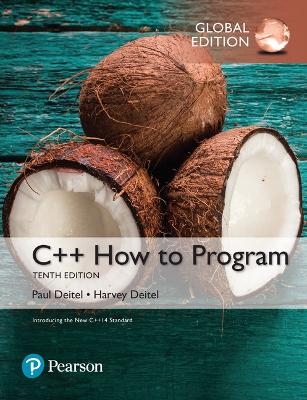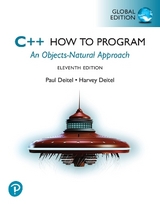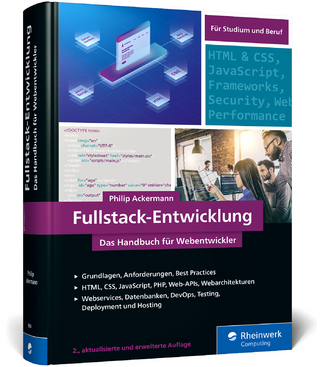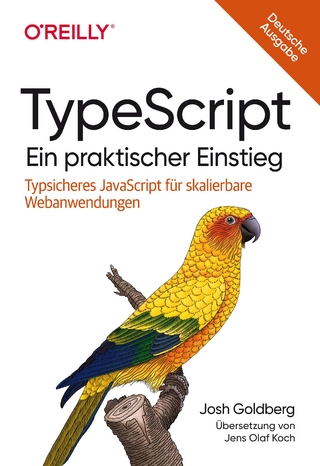
C++ How to Program, Global Edition
Pearson Education Limited (Verlag)
978-1-292-15334-6 (ISBN)
- Titel erscheint in neuer Auflage
- Artikel merken
The best-selling C++ How to Program is accessible to readers with little or no programming experience, yet comprehensive enough for the professional programmer. The Deitels’ signature live-code approach presents the concepts in the context of full working programs followed by sample executions. The early objects approach gets readers thinking about objects immediately–allowing them to more thoroughly master the concepts. Emphasis is placed on achieving program clarity and building well-engineered software. Interesting, entertaining, and challenging exercises encourage students to make a difference and use computers and the Internet to work on problems. To keep readers up-to-date with leading-edge computing technologies, the 10th Edition conforms to the C++11 standard and the new C++14 standard.
1 Introduction to Computers and C++ 1
2 Introduction to C++ Programming, Input/Output and Operators
3 Introduction to Classes, Objects, Member Functions and Strings
4 Algorithm Development and Control Statements: Part 1
5 Control Statements: Part 2; Logical Operators
6 Functions and an Introduction to Recursion
7 Class Templates array and vector; Catching Exceptions
8 Pointers
9 Classes: A Deeper Look
10 Operator Overloading; Class string
11 Object-Oriented Programming: Inheritance
12 Object-Oriented Programming: Polymorphism
13 Stream Input/Output: A Deeper Look
14 File Processing
15 Standard Library Containers and Iterators
16 Algorithms
17 Exception Handling: A Deeper Look
18 Introduction to Custom Templates
19 Custom Templatized Data Structures
20 Searching and Sorting
21 Class string and String Stream Processing: A Deeper Look
22 Bits, Characters, C Strings and structs
Chapters on the Web
A Operator Precedence and Associativity
B ASCII Character Set
C Fundamental Types
D Number Systems
D.1 Introduction
D.2 Abbreviating Binary Numbers as Octal and Hexadecimal Numbers
D.3 Converting Octal and Hexadecimal Numbers to Binary Numbers
D.4 Converting from Binary, Octal or Hexadecimal to Decimal
D.5 Converting from Decimal to Binary, Octal or Hexadecimal
D.6 Negative Binary Numbers: Two’s Complement Notation
E Preprocessor
E.1 Introduction
E.2 #include Preprocessing Directive
E.3 #define Preprocessing Directive: Symbolic Constants
E.4 #define Preprocessing Directive: Macros
E.5 Conditional Compilation
E.6 #error and #pragma Preprocessing Directives
E.7 Operators # and ##
E.8 Predefined Symbolic Constants
E.9 Assertions
E.10 Wrap-Up
Appendices on the Web
Index
| Erscheinungsdatum | 09.12.2016 |
|---|---|
| Verlagsort | Harlow |
| Sprache | englisch |
| Maße | 180 x 230 mm |
| Gewicht | 1519 g |
| Themenwelt | Mathematik / Informatik ► Informatik ► Programmiersprachen / -werkzeuge |
| ISBN-10 | 1-292-15334-2 / 1292153342 |
| ISBN-13 | 978-1-292-15334-6 / 9781292153346 |
| Zustand | Neuware |
| Informationen gemäß Produktsicherheitsverordnung (GPSR) | |
| Haben Sie eine Frage zum Produkt? |
aus dem Bereich



